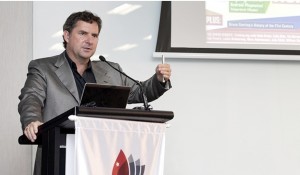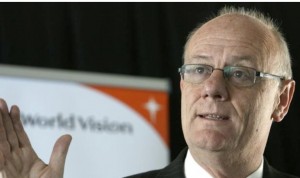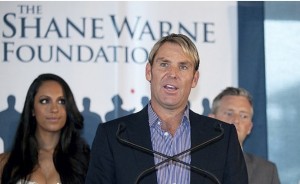
‘the new CEO of the CSIRO Mr Larry Marshall, talked without irony, erudition, or imagination on how the CSIRO needed to be more geared to the needs of Industry. Which Industry?’.
Being charitable is catchy.
Every now and then, the editorial department at PCbyCP gives a nod to charitable works. We feel it balances the somewhat sordid, predictable sarcasm we direct towards politics, and occasionally we feel depleted by the reality that seems to out-satirize, our efforts. It’s a thankless task and increasingly frustrating, when the Prime Minister in full swing with the “Ideas Boom’, talks of innovation and closes down the entire climate science apparatus of CSIRO. We can’t trump that for satire. We tried, and then the new CEO of the CSIRO Mr Larry Marshall, talked without irony, erudition, or imagination on how the CSIRO needed to be more geared to the needs of Industry. Which Industry?. Australian Industry. We couldn’t top that. Laughed so much it hurt. That’s why we want to devote a whole week, (cepting Paddy’O’s installments on the non election) devoted to Charities.
Charities are really useful. And in our experience they are usually fronted by ‘vital people’. Vital People are people who are willing to ‘give it a go’. Do the heavy lifting that government just cant do. Often the vital people are quite proud to sit at the very front of the charity they represent. Some of them, (was the salary of the CEO of the American Red Cross reputed to be 600 K?) are quite happy to be really really well remunerated, and have to shoulder the onerous responsibility of doing all the things that charities are required to do. Sign off on annual reports, ensure that fundraising grows, and gee up the army of volunteers who do the grunt work of sustaining the charity for free. They tell us that without these vital, socially conscious charities our society would be poorer, bereft and moribund. That’s why we have charities, to do the bits that governments can’t do.
The people who head the charities don’t mind getting a bit of publicity, and often are very keen to ensure that their “unbiased, objective charitable’ viewpoint is heard above the clamour of politics and vested interests. That’s why charities are invariably NOBLE. There’s nobility in heading up a charity and distributing largesse to the poor, the bereft, the needy, the infirm, the voiceless, because that’s what charities are there for. To help those who cannot help themselves. Like churches, charities are tax free. That’s right, they don’t have to pay tax, because they’re working so hard at improving the lot of society. Doing the stuff that governments wont do.
Occasionally the odd charity falls foul of the regulator. I don’t know who the regulator is, but recently a very famous spin bowler, (retired) got into a bit of trouble about spending all the money raised in his charity on entertainment, overseas travel and grog. I personally don’t think there’s anything wrong with that, because at least the individuals within that charity had a a bit of fun in exercising their noble responsibilities. Whereas, a lot of charities, and this includes most NGO’s seem to be DEADLY EARNEST.
I suppose they have to be deadly earnest because of the things they see and do. In Central Australia the charities are chock a block , like flies on a carcass, helping the wretched, destitute, hopeless first australians, because as the charities will tell you, ‘they can’t help themselves’. That’s another thing about charities, once you’ve got em, there’s no ‘Mission Completed’ as George Bush announced, they’re stuck with you forever. That’s because doing good is ongoing, Doing the stuff that governments can’t do. We could make governments do that stuff, but I don’t think it suits government either, and keeps things at arms length. You need to be at arms length to get a perspective when you’re in a charity. Being objective, helps you stay focused on maintaining that tax free income stream, and growing the charity, which a bit like missionary work, is endless, and unstoppable.
Hooray for charities, and happy must be the poor, the dispossessed, the disenfranchised to receive the bounty of charity. They have no choice, because it’s for their own good. Next week we may talk about the other tax free organisations, (the churches) that do good works and occasionally cross the line between church and state and tell government what they should do. For the good of us all. Charity invariably know what’s good for us, and thats very comforting.





